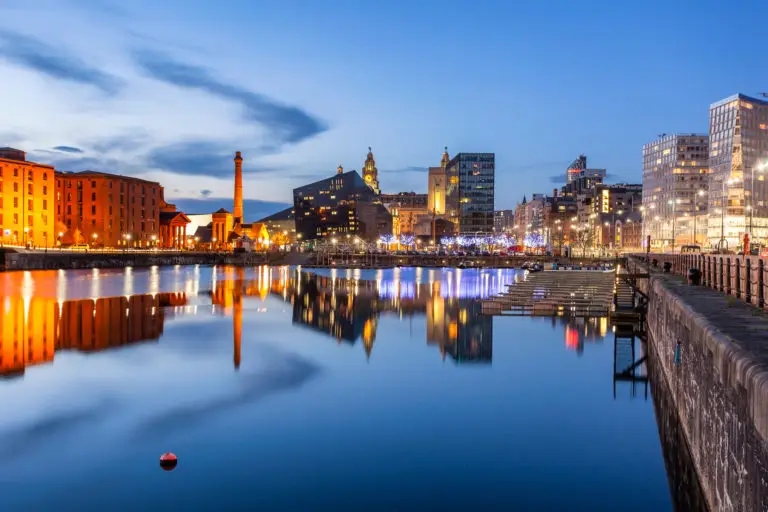For a city that has spent £740 million on developing its heritage assets, has a world-famous legacy of culture and embraces global tourism, the decision to strip Liverpool of its World Heritage status was disappointing and confusing to say the least. However, when has a setback ever stood in Liverpool’s way?
Liverpool was first granted World Heritage status in 2004, a year after being named as the European Capital of Culture for 2008. This decision was put under review in 2011 with UNESCO highlighting concerns around development and regeneration plans along the city’s waterfront. The vision for redevelopment in the city has significantly changed since UNESCO first objected a decade ago, with proposals for new tall buildings never going ahead. Ultimately, it was development plans such as building a new stadium for Everton Football Club in the Bramley Moore dock that played the deciding role in deleting Liverpool from the World Heritage status list – despite these plans being hugely popular to local people.
It is unthinkable that a modern city should be required to leave derelict land unused in one of the poorest regions in Europe in order to fulfil World Heritage status criteria. The regeneration plans in the city are expected to create thousands of jobs as well as bringing vibrancy and life back to an area that was being left behind. Preserving World Heritage sites should not be at odds with futureproofing cities and making them workable for the people that live in them.
If you haven’t visited Liverpool in the last decade – which includes the Delegates who cast the votes in the ballot – we urge you to come and see the city for yourself. Walking around our waterfront in particular shows a city that embraces its past and is looking to the future. In addition to the stunning architecture across the city centre, Liverpool also boasts the largest Cathedral in the UK and our Chinatown is home to the oldest Chinese community in Europe. There is a centuries-old legacy of embracing cultural diversity that is still felt across the city today.
Liverpool is also at a turning point in its leadership. Newly elected Mayor Joanne Anderson is passionate about celebrating our history whilst also not shying away from the uncomfortable parts of the city’s past, particularly Liverpool’s role in the slave trade. Anderson wrote to all of the UNESCO Committee, asking for a deferral on their decision and inviting them to come and visit the city as it stands today. Regrettably, this request went unanswered, and Liverpool was not given the opportunity to demonstrate the stronger position it is in now than it was ten years ago during the last UNESCO visit.
For some, the decision to delete Liverpool from the World Heritage list would be seen as embarrassing. Only two other places in the world have ever lost their status. Yet, for a unique place like Liverpool, this will only reinforce the city’s commitment to showcasing and investing in our heritage and our people. This city has always been resilient and prepared to stand up for itself, and the loss of our World Heritage status will be no different. With or without UNESCO recognition, Liverpool will continue to celebrate its history while striving to improve the lives of its residents, both now and for generations to come.
Niamh Mercer is Head of Liverpool City Region at PLMR, providing PR, public affairs and reputation management support to clients across a range of sectors. If you are a local business interested in discussing how PLMR can support you in delivering communications with impact, please get in touch at niamh.mercer@plmr.co.uk.





